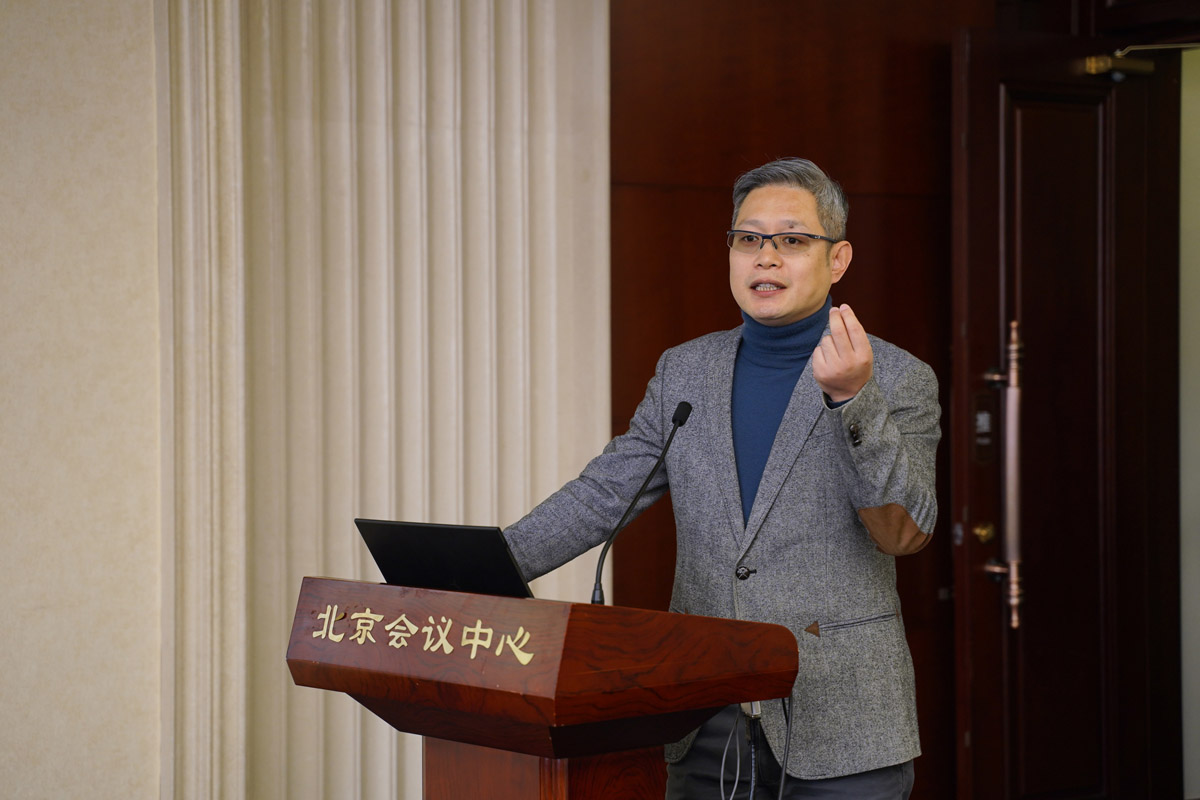News
Project led by Dr. Simon Han makes it into CACM’s compilation of outstanding research achievements in 2019
11 November 2019
A research project led by Dr. Simon Han Quanbin, Associate Professor of CMTR, has been chosen by China Association of Chinese Medicine (CACM) for inclusion in its 2019 Compilation of Outstanding Research Achievements by Young Scholars of Chinese Medicine.
Earlier this year, CACM called for young Chinese medicine scholars across the country to report their research outcomes and invited esteemed experts in the field to assess the scientificity, applicability and originality of the submitted works. The compilation of the outstanding achievements was launced in November following the public announcement of the selection results.
At a conference held on 10 November in Beijing to celebrate and share the success of the young and rising researchers with members of the academia and the industry, Dr. Han gave a keynote speech on his accomplishments in qualitative and quantitative analysis of polysaccharides in Chinese medicines. The project has thus far been granted seven patents including four in the US and three others in mainland China, Hong Kong and Macao. It also won the silver medal of the Hong Kong Innovative Invention Award presented by the Hong Kong Federation of Innovative Technologies and Manufacturing Industries in 2017, and a gold medal at the First Asia Exhibition of Inventions Hong Kong in 2018.
In recent years, huge research efforts have been channelled into the development of herbal drugs. While this burgeoning trend has brought Chinese medical formulas to global spotlight, it has also fuelled growing demand and expectation for qualitative and quantitative analysis of Chinese medicinal materials. For a long time, the characterisation and quantification of the polysaccharides in Chinese medicines has posed a major challenge to researchers, even causing a bottleneck to the progress of their studies. The simple and effective solution invented by the team will not only boost research and development of polysaccharide-rich and prized Chinese medicines and health food, but also inject new technology into the quality control of Chinese herbal medicines, thereby facilitating their launch into the global market.
The invention of the team has enjoyed a lot of media coverage and public attention. It has now been commercialised through a Hong Kong-based start-up company, which has already gained a firm foothold in the market by collaborating with some of the most established health food and pharmaceutical enterprises in Hong Kong and mainland China.

